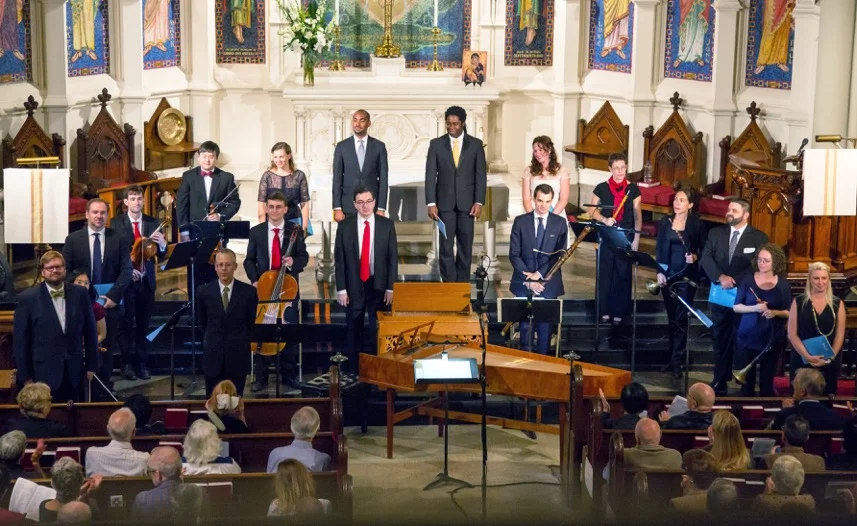The early-music vocal ensemble Tenet opened its season on Saturday evening at the Holy Trinity Lutheran Church with resplendent performances of four Bach motets, conducted by Scott Metcalfe. The group has sung this richly virtuosic choral music in the past, but here, following a practice that scholars believe Bach employed, it joined forces with the period-instrument ensemble the Sebastians, with each instrumentalist doubling one vocal line. A soprano might be twinned with a violin, for instance; a baritone with a bassoon. Some of the tenor parts, with their difficult-to-match range, were doubled by an oboe da caccia, the scimitar-shaped “hunting oboe” of Bach’s time, with its distinct, throaty sound.
Read MoreThe vocal ensemble Tenet, under the direction of Scott Metcalfe, performed a “Vespers for the Feast of St. John the Baptist” as part of its Green Mountain Project on Sunday at St. Paul’s Church in Cambridge. As the bilingually punned name suggests, the project concentrates on the music of Claudio Monteverdi (1567–1643). For this particular program, the group’s nine singers were joined by two violins, a bass violin, two cornetti, four sackbuts, two theorbos, and a positiv organ for a glowing concert of early Baroque sacred delights.
Read MoreThe new Early Music Festival: NYC, which ended last week, gives reason for cautious hope. You can’t be categorical about its prospects one way or the other, because several more or less similar ventures have come and gone in recent years.
But it is also clear that times are changing, and the current climate seems propitious. To a critic who used to lament with some regularity the lack of a vibrant early-music scene in New York, comparable to those in Boston and San Francisco — let alone, say, London and Cologne — the last decade has proved astounding.
Read MoreWe know Monteverdi as, among other things, the composer of the “Vespro della Beata Virgine,” commonly known as the “Vespers of 1610.” It is by many leagues his most renowned piece of sacred music, and one of the great liturgy settings of the 17th century. Yet treating the “Vespers” as a stable, discrete work is deceptive. Since it entered the canon, debates over its nature, purpose, even its actual component parts have arisen, persisting to this day. This provides opportunities for fresh thinking and rediscovery, not only about this piece but also about the context that gave rise to it.
Read MoreDrawing on their considerable performing experience, New York-based early music group Tenet have produced a well-rounded and impeccably performed collection of lesser-know canzonette and instrumental works by Monteverdi and his Italian contemporaries.
Read More




